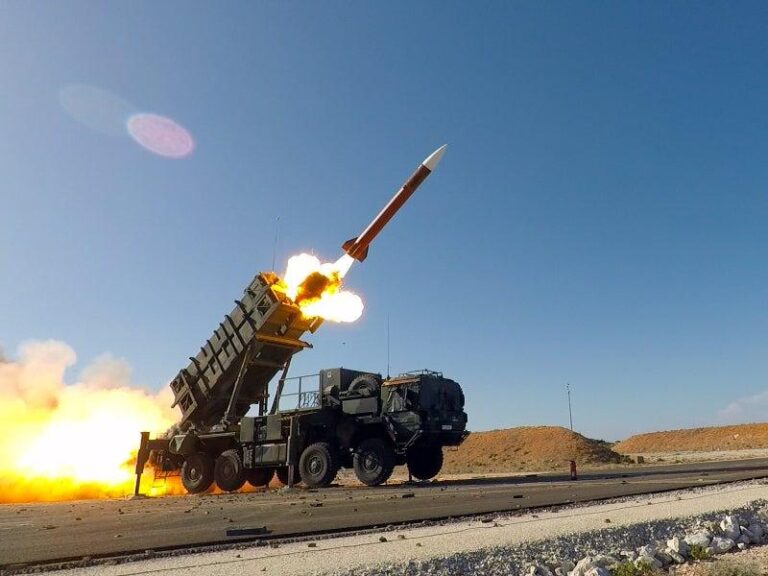Germany is evaluating a potential procurement of the Patriot air defence system in collaboration with Switzerland, marking a significant step in bolstering European missile defence capabilities. This joint consideration reflects growing concerns over regional security and the evolving nature of aerial threats. As both nations explore this strategic partnership, defense experts anticipate that the move could enhance interoperability and strengthen collective deterrence within the continent.
Germany Explores Strategic Collaboration with Switzerland for Enhanced Patriot Air Defense Capabilities
Germany is actively engaging with Switzerland to explore joint procurement and operational deployment of the Patriot air defense system, aiming to bolster its regional defense architecture. This collaborative approach could lead to shared training programs, integrated command structures, and streamlined maintenance processes, maximizing both nations’ capabilities while reducing individual expenditure. Officials underscore the enhanced threat landscape in Europe, making interoperability and strategic partnerships a critical component for sustained airspace security.
Key aspects under consideration include:
- Coordinated acquisition plans to leverage economies of scale.
- Unified logistical support minimizing downtime and increasing system availability.
- Joint live-fire exercises to improve tactical proficiency and threat response.
| Country | Patriot Units Planned | Projected Operational Date |
|---|---|---|
| Germany | 8 | 2026 |
| Switzerland | 4 | 2025 |
By fostering closer defense collaboration, both countries aim to enhance deterrence capabilities against modern aerial threats, including ballistic missiles and advanced aircraft. Analysts view this move as a significant step toward reinforcing NATO’s eastern flank and deepening European defense integration.
Assessing the Impact of Joint Procurement on Regional Security and Military Readiness
Joint procurement initiatives, such as the potential acquisition of Patriot air defence systems by Germany in collaboration with Switzerland, represent a strategic move toward enhancing regional security while optimizing costs. By pooling resources and harmonizing defense capabilities, participating countries can achieve greater interoperability, reduce redundancy in procurement, and streamline logistics. This cooperation potentially creates a unified front against emerging aerial threats, reinforcing deterrence within Central Europe’s complex security environment.
Moreover, the combined acquisition process positively influences military readiness by fostering closer operational alignment and joint training exercises. These factors contribute to faster deployment response times and shared intelligence frameworks. Key benefits include:
- Cost efficiency: Shared R&D, maintenance, and lifecycle expenses lower individual national burdens.
- Standardized equipment: Enhances joint mission effectiveness and reduces compatibility issues.
- Force multiplication: Amplifies collective defense capabilities without proportional budget increases.
| Factor | Impact | Benefit |
|---|---|---|
| Cost Sharing | Reduced financial strain | Budget optimization |
| Interoperability | Seamless coordinated operations | Improved mission success |
| Training | Joint exercises | Enhanced readiness |
Recommendations for Strengthening Bilateral Defense Partnerships and Streamlining Acquisition Processes
Enhancing bilateral defense collaboration between Germany and Switzerland requires a clear focus on fostering trust, transparency, and interoperability. Establishing joint working groups dedicated to aligning strategic priorities and sharing threat assessments can accelerate decision-making processes. Additionally, leveraging existing frameworks such as NATO standards or EU defense protocols can streamline integration efforts, ensuring that platforms like the Patriot air defense system are operationally compatible and maintainable by both nations. Emphasizing regular joint exercises and information exchanges will also solidify mutual understanding and readiness.
Key initiatives to consider include:
- Harmonizing procurement regulations to reduce bureaucratic delays
- Creating shared acquisition task forces to explore co-development opportunities
- Implementing joint funding models to optimize resource allocation
- Standardizing logistics and maintenance procedures
| Aspect | Germany | Switzerland | Joint Opportunity |
|---|---|---|---|
| Procurement Timeline | 12-18 months | 15-20 months | 10-15 months (harmonized) |
| Budget Allocation | €2 billion | CHF 1.8 billion | Shared cost-efficiency |
| System Integration | Advanced | Moderate | Unified framework |
| Training Programs | In-house military academies | Joint military simulation centers | Combined curriculum |
Insights and Conclusions
As Germany explores the procurement of Patriot air defence systems in collaboration with Switzerland, both nations demonstrate a strategic commitment to strengthening their regional security frameworks. This potential partnership reflects evolving defense priorities amid growing geopolitical uncertainties in Europe. Further developments will be closely monitored as Germany advances its efforts to enhance air defence capabilities alongside its Swiss counterpart.




